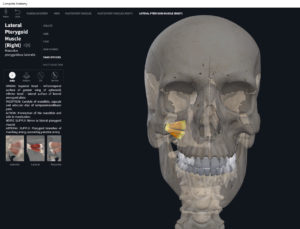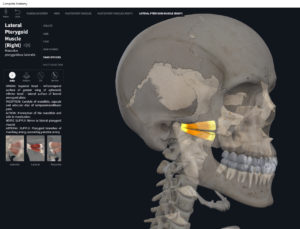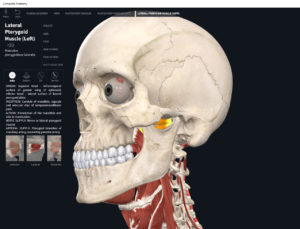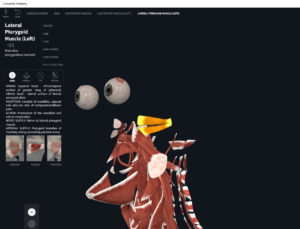Anatomy & Physiology: Muscles—Lateral Pterygoid.
Structure.
- Origin: greater sphenoid wing and lateral surfaces of sphenoid.
- Insertion: mandibular condyle; temporomandibular joint.
Function.
- Concentric action: protracts and depress mandible (opening mouth); moves mandible from side to side; contralateral deviation of the mandible.
- Reverse mover action: moves cranium posterior and lateral (ipsilaterally) toward mandible.
- Eccentric action: controls/restrains/slows retraction and ipsilateral deviation of mandible.
- Isometric action: stabilizes mandible.
- Innervation: trigeminal V nerve.
- Arterial supply: maxillary artery.
Clinical Significance.
More.
References
Biel, A. (2015). Trail guide to the body: A hands-on guide to locating muscles, bones and more.
Cedars-Sinai. (2018). Vertebrae of the spine. Retrieved from https://www.cedars-sinai.org/health-library/diseases-and-conditions/v/vertebrae-of-the-spine.html
Clark, M., Lucett, S., Sutton, B. G., & National Academy of Sports Medicine. (2014). NASM essentials of corrective exercise training. Burlington, MA: Jones & Bartlett Learning.
Jenkins, G., & Tortora, G. J. (2012). Anatomy and Physiology: From Science to Life, 3rd Edition International Stu. John Wiley & Sons.
Muscolino, J. E. (2017). The muscular system manual: The skeletal muscles of the human body.




